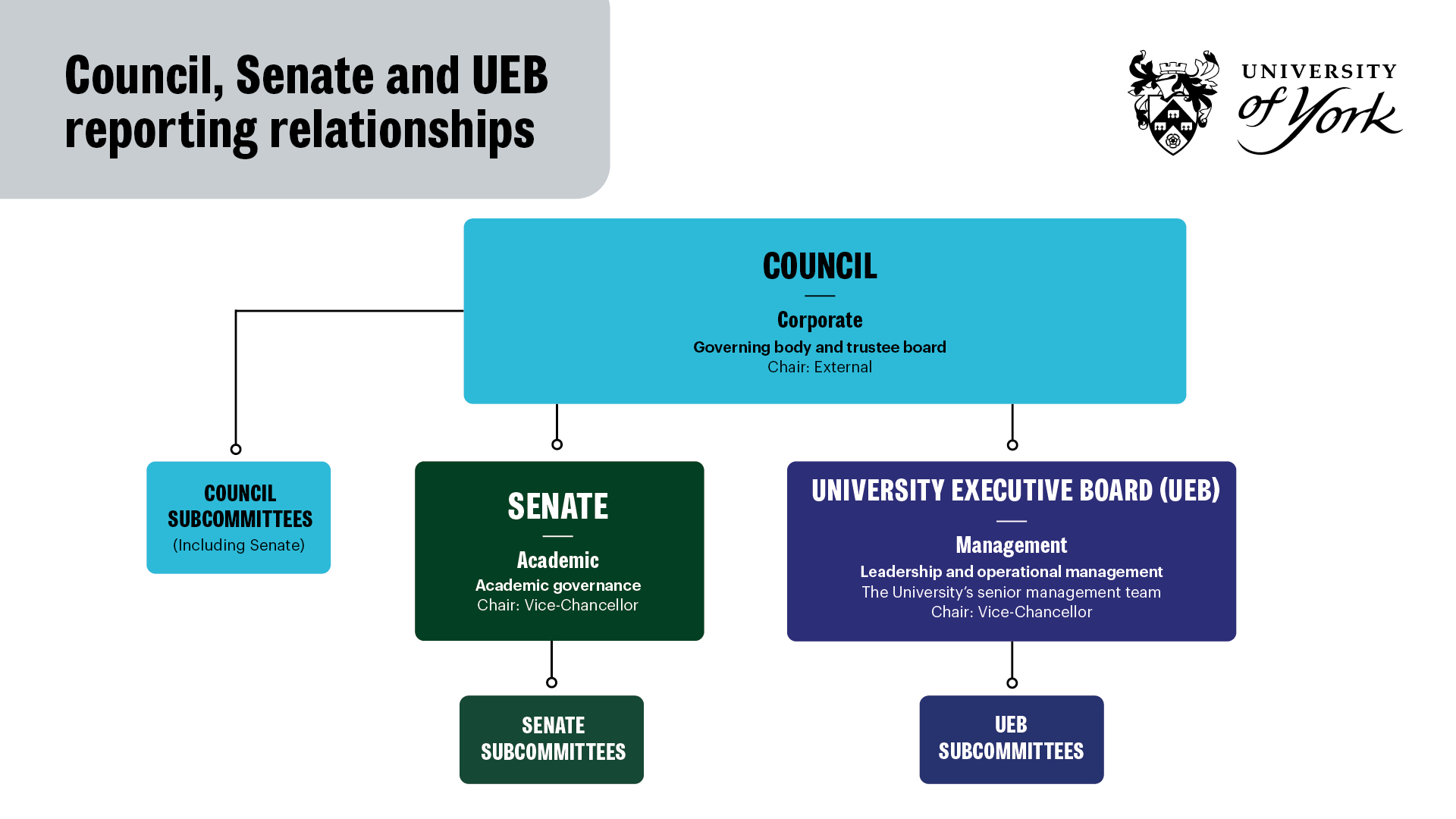
Governance and management
Setting our direction, delivering our aims, leading our community
What do Council, Senate and UEB do?
What are the main responsibilities of Council, Senate and the University Executive Board? Who are the people on these boards? How do they interact with each other and their subcommittees?
Watch our video and let Dr Adam Dawkins (University Secretary, 2019-2023) talk you through the key decision-making bodies at the University. He'll help you understand how leadership and governance works at York, what the different bodies do, and which committees are responsible for the decisions that affect you.

- Download a pdf of this graphic: Council, Senate and UEB reporting relationships graphic 2024 (PDF
 , 727kb)
, 727kb)
Student voice in governance
Our students play an important role in decision making at York.
The University has a strong culture of creating partnerships with students and ensuring they have a voice in our governance procedures.
Undergraduate and postgraduate students are represented on a large number of our committees, including on Council and Senate.
- View the guidelines for student representatives on University committees (login required).
Members of the Student Expert Panel provide advice and challenge for the University on issues including access and participation, and equality, diversity and inclusion.
The University works closely with the University of York Student's Union to make policy and to improve students' experiences inside and outside the classroom.

Transparency and openness
As a university for public good, the University of York is committed to transparency and openness.
The University receives both public and private funding and therefore has a duty to observe the highest standards of governance and good practice for both private and public sector bodies.
The University complies with a code of conduct based on the principles set out in the Committee of University Chairs (CUC) Governance Code of Practice.
In both governance and management, the University also subscribes to the seven principles of public life set out by the Nolan Committee’s report on Standards in Public Life. These are the benchmarks against which the University seeks to be judged and against which it judges itself.
The University also hold Good Business Charter accreditation in recognition of its commitment to responsible business practices.
Read our Code of practice for transparency in the conduct of committee business
Governance documents

Read and download corporate and governance documents, and find links to policies, procedures and guidance for staff.
You can also find out more about how decisions are made at the University, including information on our legal and charitable status, charter and statutes, regulations and ordinances.
